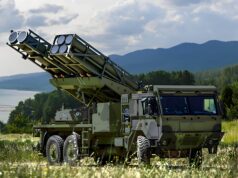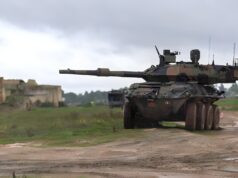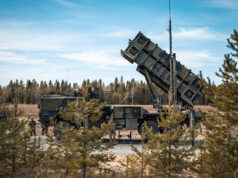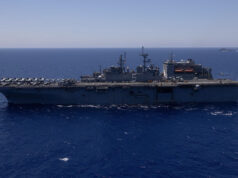NATO Secretary General Jens Stoltenberg spoke at the German Marshall Fund’s Brussels Forum on Thursday.
The forum touched on issues ranging from Afghanistan to the Arctic, and arms control to European defence cooperation. He said that NATO “has worked for 70 years and it is going to work for many more years, as long as we are united, strong and credible.”
The Brussels Forum brings together European and North American senior public and private sector leaders, academia and the media, to discuss current transatlantic challenges.
Jens Stoltenberg said:
“For NATO and for NATO Allies, and for the close to one billion people living in NATO, deterrence works every day. And it has worked every day for 70 years. Because the whole purpose of deterrence is to make sure that no NATO Ally is attacked. And we deliver credible deterrence by sending a clear message to any potential adversary that if one NATO Ally is attacked, the whole Alliance will respond. And by doing that, we actually preserve the peace. The idea of deterrence is not to provoke a conflict, but to prevent a conflict.Â
So, it’s extremely successful.Â
It has worked for 70 years and it is going to work for many more years, as long as we are united, strong and credible. Then of course we will respond, and that was the big decision we made at the Defence Ministerial meeting yesterday. And that was to say that, if Russia does not come back into compliance, we will respond. We are considering different measures. I mentioned yesterday conventional of course, air missile defence, exercises, new initiatives on arms control, and so on.”











Absolutely, and what is more, NATO’s Modus Operandi has broadened to involve non-European countries. However, the formation of an independent European defence organisation, could lead to a dilution in NATO’s mandate? Configuring a working partnership between the two parties, is in theory, feasible but I fear it will simply create hesitation at a time of crisis rather than a unified rapid response?
I think there would need to be a massive shift in power before a European Army could become a reality. Some people would clearly support this but I suspect the silent majority would be more wary. This smacks of federalists attempting to get past the point of no return before the walls start tumbling down.
European Army? It sounds interesting but who’s going to fund it and who’s going to command it? Germany can’t even sortie 1 of it’s submarines and their military is basically way underfunded and broken. Also the EU doesn’t have anywhere near the heavy lift or refueling capacity necessary for something like this without begging the US and Nato for help every time they want to move something or project power. Not to mention the abysmally small stockpiles of weapons, ect. So unless the EU is planning to massively increase defense spending this is just a pipe dream.
The idea is still alive and kicking however, the only loser will be NATO as serving both will be stretching it beyond most members budgets.
Couldn’t agree more.
It has. But today the fetish for reducing numbers & spending has made us virtually so weak it practically invites aggression.